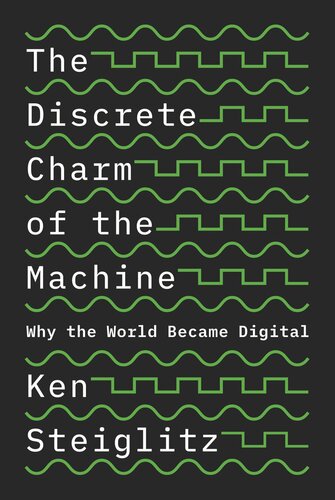

Most ebook files are in PDF format, so you can easily read them using various software such as Foxit Reader or directly on the Google Chrome browser.
Some ebook files are released by publishers in other formats such as .awz, .mobi, .epub, .fb2, etc. You may need to install specific software to read these formats on mobile/PC, such as Calibre.
Please read the tutorial at this link: https://ebookbell.com/faq
We offer FREE conversion to the popular formats you request; however, this may take some time. Therefore, right after payment, please email us, and we will try to provide the service as quickly as possible.
For some exceptional file formats or broken links (if any), please refrain from opening any disputes. Instead, email us first, and we will try to assist within a maximum of 6 hours.
EbookBell Team

4.1
50 reviewsThe genesis of the digital idea and why it transformed civilization
A few short decades ago we were informed by the smooth signals of analog television, radio, and vinyl discs; communicated with our analog telephones; and even computed with analog computers. Today our world is digital, built with zeros and ones. Why did this revolution occur? The Discrete Charm of the Machine explains, in an engaging and accessible manner, the varied physical and logical reasons behind this radical transformation.
The spark of individual genius shines through this story of innovation: the stored program of Jacquard’s loom; the logical branching of Charles Babbage; Alan Turing’s brilliant abstraction of the discrete machine; Harry Nyquist’s foundation for digital signal processing; Claude Shannon’s breakthrough insights into the meaning of information and bandwidth; and Richard Feynman’s prescient proposals for nanotechnology and quantum computing. Ken Steiglitz follows the progression of these ideas in the building of our digital world, from the internet and artificial intelligence to the edge of the unknown. Are questions like the famous traveling salesman problem truly beyond the reach of ordinary digital computers? Can quantum computers transcend these barriers? Does a mysterious magical power reside in the analog mechanisms of the brain? Steiglitz concludes by confronting the moral and aesthetic questions raised by the development of artificial intelligence and autonomous robots.
The Discrete Charm of the Machine examines why our information technology, the lifeblood of our civilization, became digital, and challenges us to think about where its future trajectory may lead.